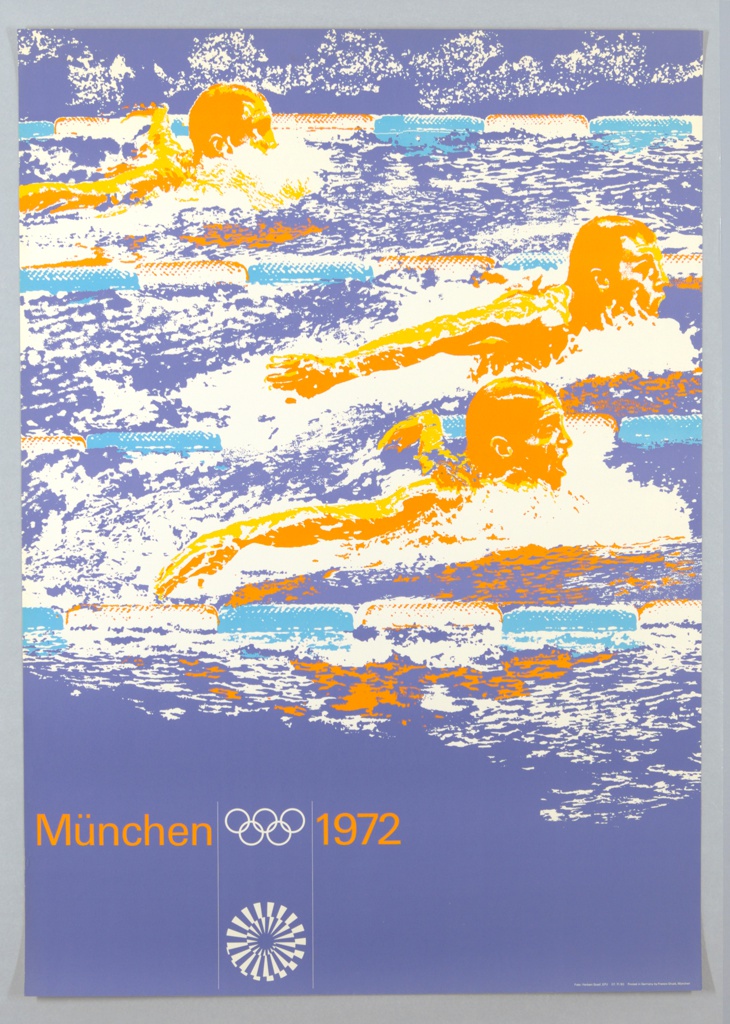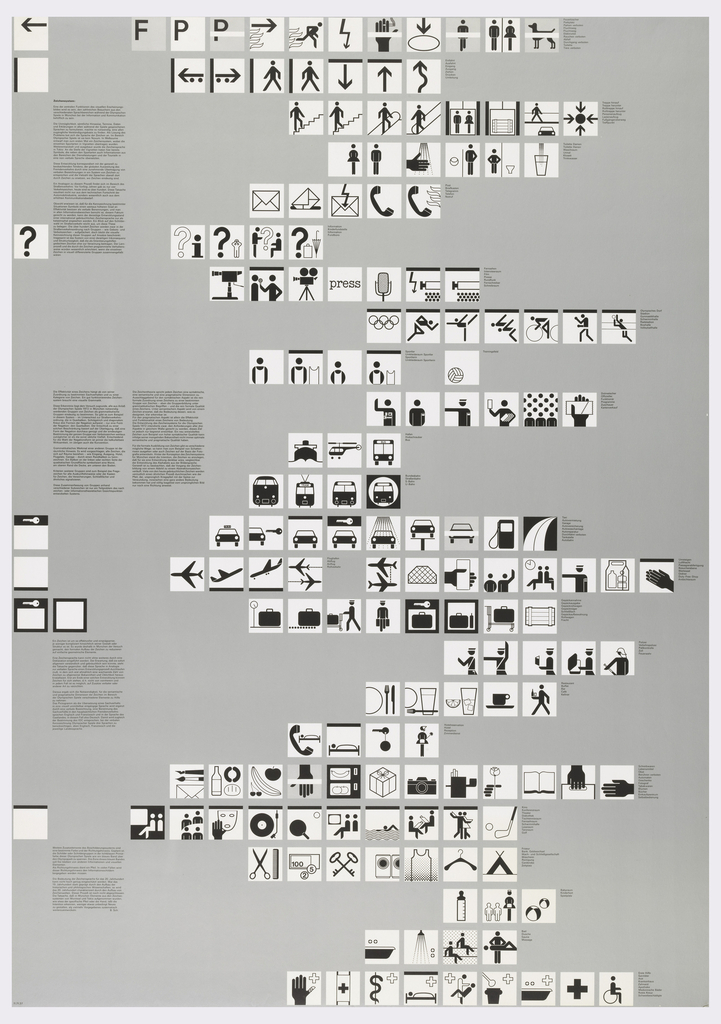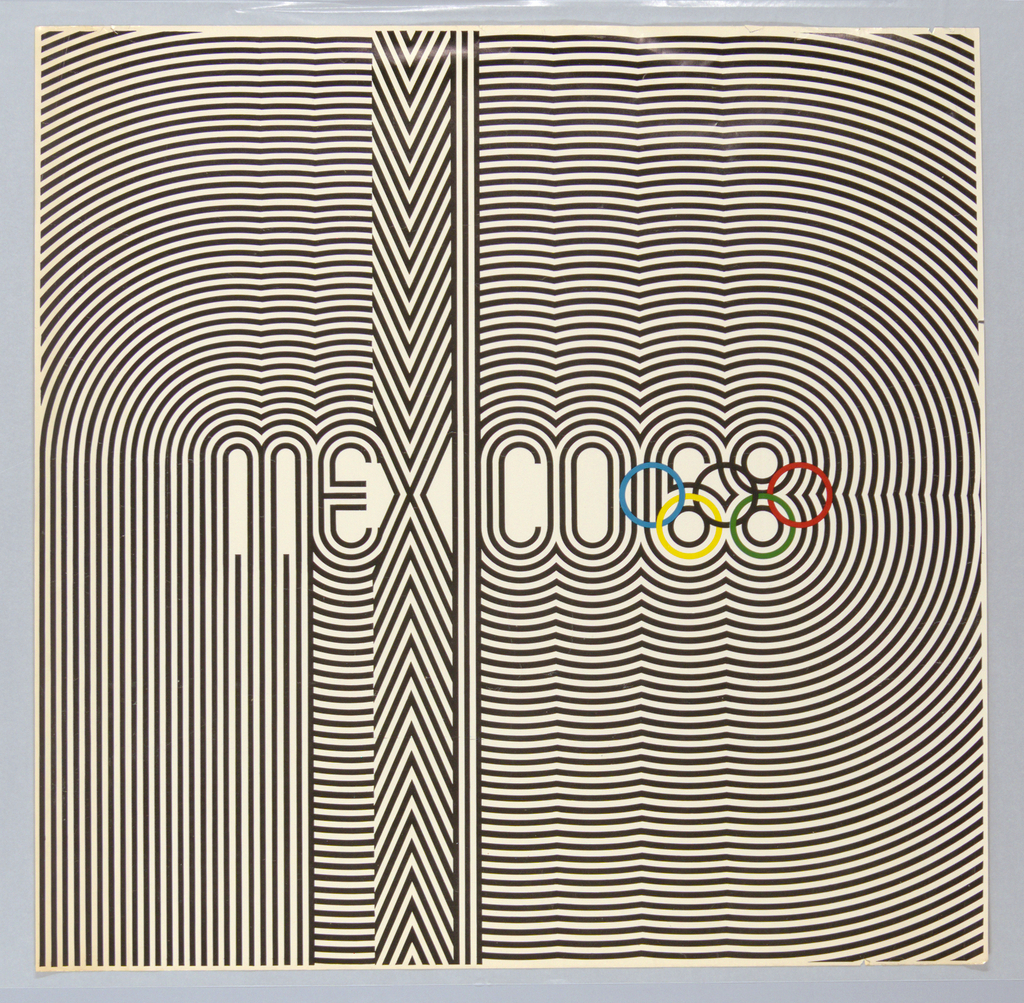For the organizers of the 1972 Munich Olympic Games, the event presented an opportunity to redefine global perceptions of German identity. It was seen as a chance for Germany to distance itself from the dark memory of the 1936 Games in Berlin, staged under Hitler’s rule. A primary objective for the 1972 Games, as scholars...
In 1966, the influential German designer, Otl Aicher (1922–1991), was hired to design the 1972 Munich Olympic Games’ iconography, language, and overall graphic scheme. By this time, Aicher had worked to modernize brands like Braun (1956–66) and Lufthansa (1962–64) and was a co-founder of the Ulm College of Design, a school established upon a post-war...
While the world’s best athletes are the obvious stars of the modern Olympic Games, countries hosting the games also have a unique opportunity to demonstrate their strengths on an international stage. The bold graphic identity of the 1968 Mexico City Olympics in this poster designed by Lance Wyman and Eduardo Terrazas intended to broadcast a...


